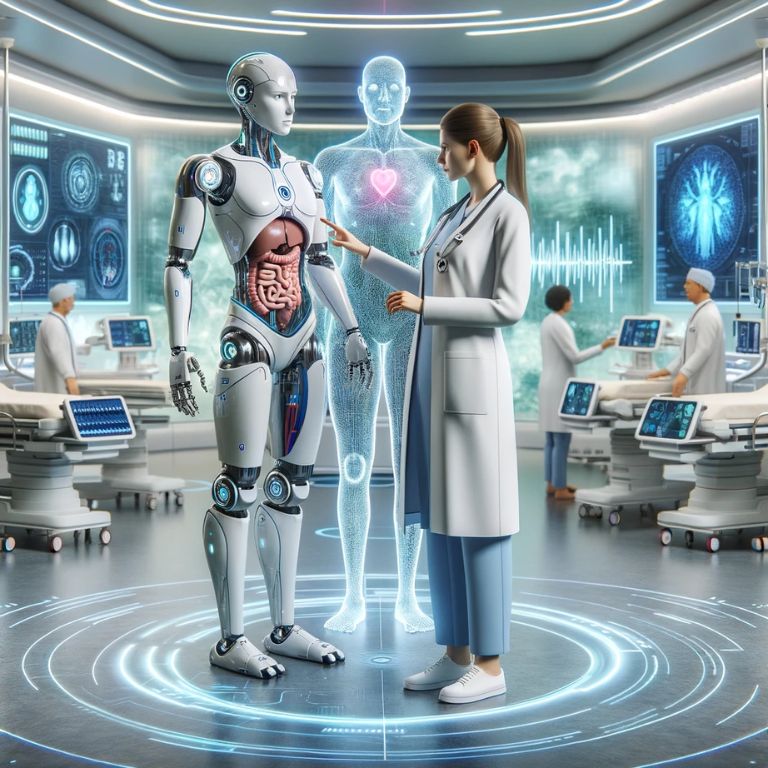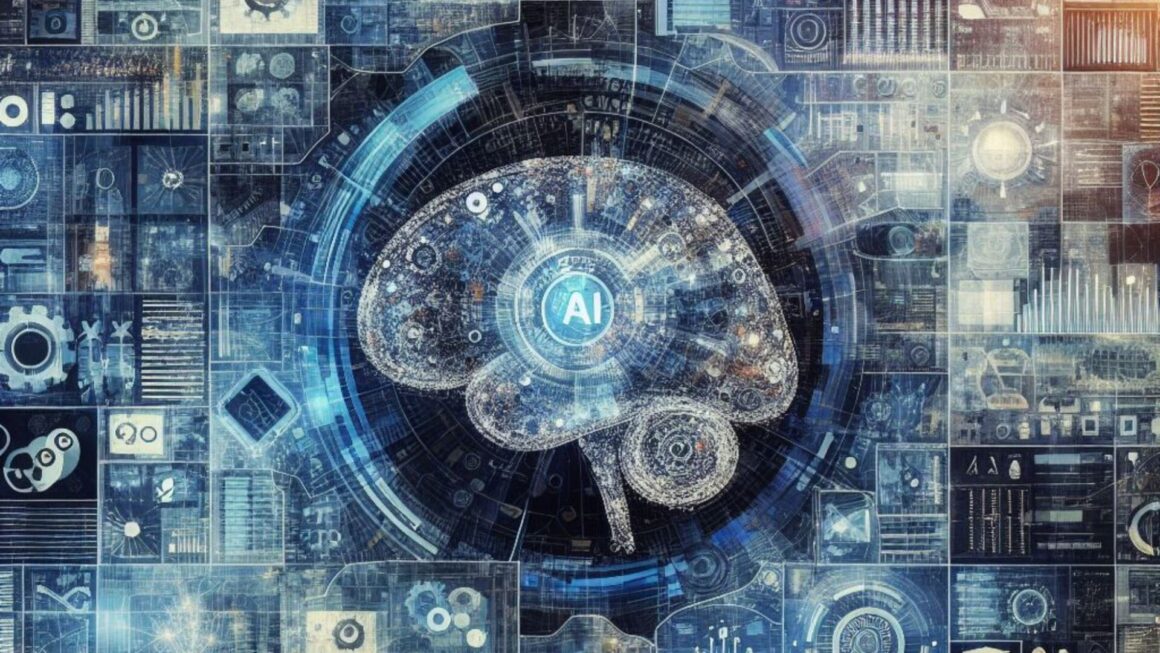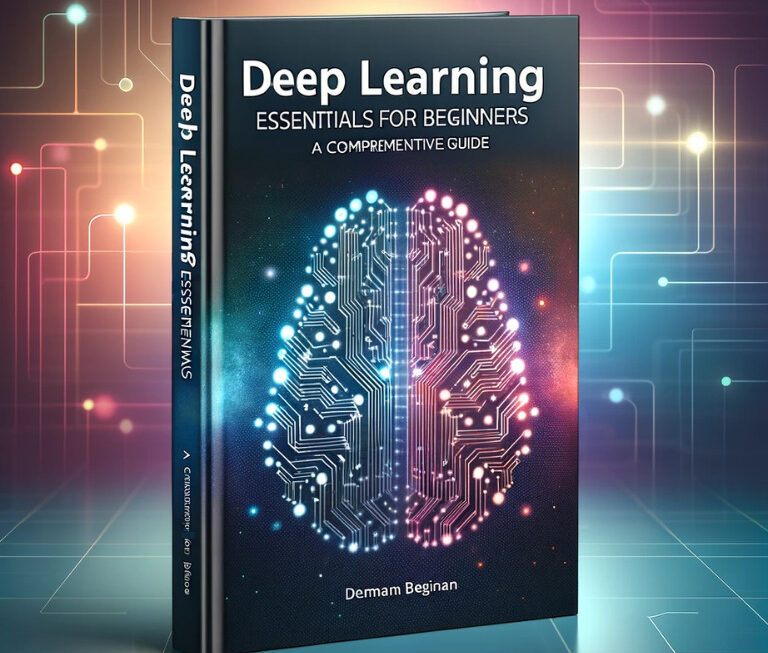Introduction to AI in Healthcare
The advent of Artificial Intelligence (AI) in healthcare marks a revolutionary stride toward a more efficient, precise, and personalized medical world. After decades of development, AI has evolved from a novel concept to a practical tool seamlessly integrated into daily medical practice. This integration has not only catalyzed considerable progress in various domains but has also reshaped the expectations and capabilities of healthcare systems globally.
The Evolution of AI in Medical Practices
AI’s journey in healthcare began with basic data analysis and has since expanded into complex realms like medical image processing, predictive analytics, and personalized medicine. These advancements have been possible due to the exponential growth in computational power, the availability of massive datasets, and significant breakthroughs in machine learning algorithms.
Successes in Medical Imaging
One of the most notable successes of AI is in medical imaging. Algorithms can now detect nuances in X-rays, MRIs, and CT scans faster and often more accurately than human eyes. This is not just about speed but also about the capability to identify patterns and anomalies that might go unnoticed by human practitioners. These advancements are crucial in early and accurate diagnosis, significantly impacting patient outcomes.
Process Optimization
AI has streamlined many administrative and clinical processes, thereby enhancing efficiency and reducing the burden on healthcare professionals. From scheduling appointments to managing patient records, AI-driven systems are enabling a smoother, more efficient workflow. This automation frees up valuable time for healthcare professionals to focus more on patient care rather than administrative tasks.
Medical Education and Training
AI’s impact extends beyond patient care into the realms of education and training. Through sophisticated simulation models, medical professionals can experience near-real scenarios, enhancing their learning and preparing them for real-life situations. Furthermore, AI systems continuously learn and update, providing the latest information and protocols to healthcare professionals, ensuring they stay at the forefront of medical knowledge.
The Promise of AI: Enhancing Healthcare Delivery
AI’s integration into healthcare has ushered in a new era of medical promise, significantly enhancing the delivery and efficacy of care. The applications of AI are manifold, each promising to revolutionize aspects of patient care, healthcare management, and overall system efficiency. These tools are not just improving the present; they’re shaping a future where healthcare is more accessible, accurate, and personalized.
Predictive Health Analytics
AI excels in identifying patterns and making predictions based on large volumes of data. In healthcare, this translates into more accurate prognoses and personalized treatment plans. For instance, AI algorithms can predict patient deterioration, potential complications, or the likelihood of rehospitalization. This predictive capability allows healthcare providers to intervene proactively, improving patient outcomes and reducing the need for costly emergency care.
Treatment Recommendations
One of the most impactful applications of AI is in treatment recommendation. By analyzing patient data and comparing it against vast medical databases, AI can suggest treatment options tailored to individual patient profiles. This is particularly revolutionary in fields like oncology, where AI helps in crafting personalized cancer therapy plans based on the genetic makeup of the patient’s tumor, significantly improving treatment effectiveness.
Automating Administrative Tasks
A substantial portion of healthcare resources is dedicated to administrative tasks. AI is changing this landscape by automating processes like patient scheduling, billing, and record-keeping. This not only reduces the administrative burden but also minimizes human error, ensuring more accurate and efficient operations. The time and resources saved here can be redirected towards direct patient care, research, and other critical areas.
Enhancing Patient Engagement

AI-powered applications and wearable technologies are empowering patients to take an active role in their health. From fitness trackers that monitor vital signs to apps that provide personalized health advice, AI is making it easier for individuals to understand and manage their health. This not only fosters a healthier population but also alleviates the burden on healthcare systems by preventing avoidable conditions.
Supporting Remote Care
Telehealth has become increasingly important, and AI is at the forefront of this transformation. AI-driven diagnostic tools and virtual assistants enable high-quality remote consultations, making healthcare more accessible, especially in underserved or remote areas. This not only extends the reach of healthcare services but also ensures continuous patient monitoring and care, irrespective of geographical barriers.
Addressing Global Healthcare Challenges
The integration of AI in healthcare isn’t just about technological advancement; it’s about responding to global challenges that have long plagued the healthcare industry. These challenges include the aging population, the rising burden of chronic diseases, and the escalating costs of healthcare. AI offers a beacon of hope, promising to address these issues by improving population health, enhancing patient and caregiver experiences, and reducing the cost of care.
Improving Population Health
AI has the potential to significantly impact public health by enabling early detection and prevention of diseases. Through large-scale analysis of health data, AI can identify patterns and risk factors for diseases, facilitating early intervention strategies. For instance, AI can analyze trends from electronic health records, environmental data, and genetic information to predict outbreaks of infectious diseases or identify areas with high incidences of certain chronic conditions. This proactive approach not only saves lives but also reduces the healthcare burden on society.
Enhancing Patient Experience
The patient experience is at the heart of healthcare delivery, and AI is playing a pivotal role in its enhancement. Personalized treatment plans, improved diagnostic accuracy, and reduced waiting times are just a few ways AI contributes to patient satisfaction. Moreover, AI-powered tools provide patients with easy access to information and support, ensuring they are well-informed and active participants in their care journey. The result is a healthcare system that is not only more effective but also more empathetic and patient-centered.
Enhancing Caregiver Experience
Healthcare providers are the backbone of the healthcare system, and AI is instrumental in improving their experience. By taking over routine tasks, providing decision support, and predicting patient risks, AI allows caregivers to focus on what they do best – caring for patients. Additionally, AI can offer continuous learning opportunities by providing access to the latest research and treatment protocols. This not only improves the quality of care but also enhances job satisfaction among healthcare professionals.
Reducing Costs
The rising cost of healthcare is a significant concern globally. AI offers a way to mitigate these costs by improving efficiency, reducing waste, and preventing avoidable hospitalizations. For example, AI systems can optimize resource allocation, manage supply chains, and predict patient admissions, ensuring that resources are used effectively. By preventing diseases, personalizing treatments, and streamlining operations, AI can reduce the overall expenditure on healthcare, making it more affordable and accessible.
Global Collaboration and Standardization
To fully realize AI’s potential in addressing these challenges, global collaboration and standardization are crucial. Sharing data, research, and best practices across borders can accelerate the development and deployment of AI solutions. Similarly, establishing international standards for data privacy, security, and interoperability can facilitate the seamless integration of AI into different healthcare systems. This global approach not only enhances the quality of AI solutions but also ensures they are accessible and beneficial to all, regardless of geographic location.
Diagnostic and Treatment Advancements Through AI
The application of Artificial Intelligence in diagnostics and treatment is one of the most promising and dynamic areas of healthcare innovation. AI’s ability to analyze complex medical data rapidly and with high precision is revolutionizing how healthcare professionals diagnose and treat diseases. This section explores how AI is facilitating substantial improvements in these domains, not just in capability but also in ensuring their widespread adoption and integration into daily healthcare practices.
Revolutionizing Diagnostics
AI’s impact on diagnostics is profound. Advanced algorithms can now analyze medical images, such as X-rays, MRIs, and CT scans, with accuracy that rivals or even surpasses human experts. These AI systems can detect anomalies and diseases at early stages, often before they become symptomatic. For example, in oncology, AI can identify cancerous lesions in mammograms with remarkable precision, enabling early intervention and significantly improving survival rates. Similarly, in ophthalmology, AI tools can detect diabetic retinopathy from retinal images, preventing blindness. The speed and accuracy of these diagnoses are not just medical triumphs; they represent a new era of preventative healthcare.
Personalizing Treatment
AI is at the forefront of the shift towards personalized medicine, where treatments are tailored to the individual characteristics of each patient. By analyzing a patient’s genetic information, medical history, and even lifestyle factors, AI can help healthcare providers devise customized treatment plans. This is particularly impactful in complex diseases like cancer, where AI can help determine which combination of drugs will be most effective based on the genetic makeup of the patient’s tumor. Similarly, in chronic disease management, AI can monitor patient data in real time, adjusting treatment plans as needed to ensure optimal outcomes.
Ensuring Adoption in Healthcare Practices

Realizing the potential of AI in healthcare depends on widespread adoption and overcoming key barriers: training healthcare providers to use AI effectively, establishing a robust regulatory framework for safety and efficacy, building trust among patients and practitioners, and equipping healthcare infrastructure for seamless AI integration, including necessary hardware and system interoperability.
Ethical Considerations
As AI becomes more integrated into diagnostics and treatment, ethical considerations become increasingly important. Issues around data privacy, consent, and the potential for bias in AI algorithms need to be addressed. There’s also the question of accountability – when an AI system is involved in a diagnostic or treatment decision, who is responsible for the outcome? Navigating these ethical waters is crucial to ensure that AI is used responsibly and for the benefit of all patients.
AI’s Role in Reshaping Healthcare Organizations
AI is transforming healthcare beyond patient care, reshaping organizational operations, interactions, and resource management. It’s not just a diagnostic tool but a force redefining healthcare structures.
Streamlining Operations
AI is crucial in optimizing healthcare operations. Predictive analytics forecast patient admissions for better staffing and resource use, while AI manages supply chains and schedules to maximize efficiency and patient convenience.
Improving Decision-Making
AI enhances healthcare decision-making by analyzing data to provide insights and real-time support, aiding leaders and clinicians with informed choices and up-to-date guidelines.
Enhancing Research and Development
AI accelerates medical research, analyzing datasets quickly to aid in drug discovery and clinical trial design, pushing the boundaries of medical science.
Training and Continuing Education
AI revolutionizes training and ongoing education, offering sophisticated simulations and personalized learning plans, keeping healthcare professionals at the forefront of medical knowledge.
Ethical and Trust Issues in AI Implementation
As Artificial Intelligence becomes increasingly embedded in healthcare, it brings to light various ethical and trust issues that must be addressed. The integration of AI in healthcare is not just a technological shift but also a cultural one, requiring trust and understanding from both healthcare providers and patients. This section delves into the ethical considerations and trust issues surrounding AI implementation in healthcare and how they can be navigated.
Transparency and Explainability
One of the biggest challenges with AI is the “black box” problem, where the decision-making process is opaque and not easily understood by humans. In healthcare, where decisions can be a matter of life and death, the need for transparency and explainability is paramount. Healthcare providers and patients must understand how AI systems make their recommendations to trust them. Efforts are being made to develop more interpretable AI models, but this remains a significant hurdle.
Data Privacy and Security
The use of AI in healthcare often involves handling sensitive patient data. Ensuring the privacy and security of this data is crucial. Breaches can have severe consequences, not just in terms of legal and financial repercussions but also in the loss of patient trust. Healthcare organizations must implement robust data protection measures and ensure that AI systems comply with regulations like HIPAA in the United States and GDPR in Europe.
Bias and Fairness
AI systems are only as good as the data they are trained on. If the data is biased, the AI’s decisions will likely be biased too. In healthcare, this can lead to disparities in the quality of care provided to different demographic groups. Ensuring that AI systems are fair and unbiased is a complex challenge that involves not just technical solutions but also a broader understanding of the social and cultural contexts in which these systems operate.
Accountability
When an AI system makes a recommendation, who is responsible for the outcome — the AI developer, the healthcare provider, or the organization? Establishing clear lines of accountability is crucial to ensure that AI is used responsibly and that there’s recourse when things go wrong. This involves not just legal frameworks but also ethical guidelines and professional standards.
Building Trust
Ultimately, for AI to be effective in healthcare, it must be trusted by both healthcare providers and patients. This involves not just addressing the technical and ethical challenges but also engaging with stakeholders to understand their concerns and perspectives. Healthcare organizations must be transparent about how they use AI and work to build a culture of trust and understanding around these technologies.
Conclusion
In summarizing “AI in Healthcare: Applications and Challenges,” it’s clear that AI is revolutionizing healthcare, offering significant improvements in patient care and operational efficiency. However, the path forward is complex, with ethical, privacy, and trust challenges demanding as much attention as technological advancements. The future of healthcare with AI is bright but requires collaborative, ethical, and strategic approaches. As we navigate this journey, the focus must remain on harnessing AI’s potential responsibly and equitably, ensuring it serves to enhance health outcomes and the quality of care globally. The promise of AI in healthcare lies not just in the technology, but in our collective commitment to using it for the greater good.




